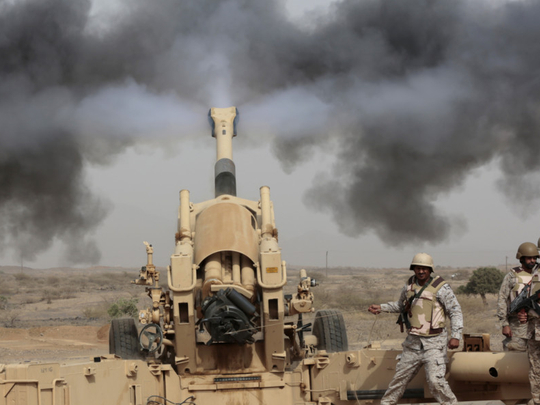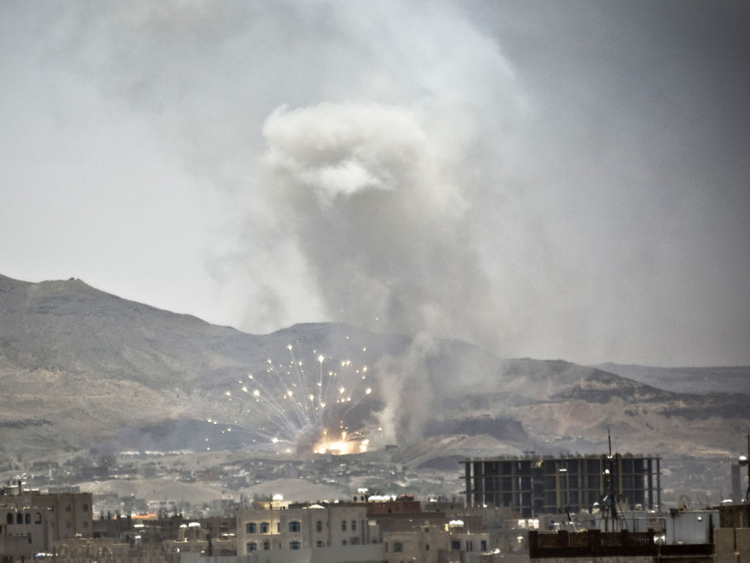
In the words of the erudite Moroccan cleric Shaikh Mohammad Abdul Wahab Rafiki, the message of Daesh (Islamic State of Iraq and the Levant) is effective because young people are predisposed to identify with religion first, rather than their nations. Rafiki, who recently spoke at a Carnegie Middle East Centre event in Beirut, is well known for arguing that the time was long overdue to give young Arabs new dreams. His message is powerful: without dreams to taste freedom and enjoy life to the fullest, which allows one to become a productive member of society, individuals are mere fodder for those who do not value life. No wonder extremists from all faiths manipulate innocent souls, deny followers essential freedoms, and subjugate masses to authoritarianism. Theirs, Rafiki clarified before he condemned the approach, is based on a simple proposition: “One must die to advance causes that one seldom comprehends in the name of the Creator.”
In the short post-2011 period that is gradually changing the Arab World, explained the erudite Moroccan, the struggle was about nothing more than liberty. This, in summary, is the current gist of the political-religious schisms dividing Arabs, regrettably presented as a Sunni-Shiite tussle of wills. In fact, the brawls are not religious per say, though most carry religious overtones, but strategic in the classic sense of the term, and it behooves us not to fall in traps that allow sectarianism to triumph.
A strategy, by definition, is a plan to achieve goals through specific means. According to this definition, Iran allegedly enjoys a considerable advantage over Saudi Arabia, because Tehran can rely on a much more homogenous bloc than Riyadh. Tehran’s allies in Iraq, Syria, Bahrain, Lebanon and now Yemen, can ostensibly rely on it because Iran, through the Pasdaran, Basij, and the Quds Force can prevent the collapse of the Syrian regime, the re-conquest of Iraqi provinces now under Daesh’s influence, the backing of Hezbollah in Lebanon, and the resupply of Al Houthi rebels in the Yemen as the latter reject national reconciliation. Somehow, Baghdad, Damascus, Beirut and Sana’a can overlook Iranian control of Arab Shiites, Alawites and Zaidis. Indeed, in the Iranian lexicon, existing tensions among Shiites are tangential, which is an inaccurate reading of conditions on the ground.
Naturally, one could make the argument that offensives launched by extremist Sunni groups like Jabhat Al Nusra, Ahrar Al Sham and Daesh, among others, do not bode well for conservative Arab governments either. It is with that goal in mind that critics of Saudi Arabia point to inconsistencies in the impressive Sunni coalition that launched Operation Storm of Resolve in Yemen, arguing that Riyadh will not succeed because, this skewed logic affirms, the Sunni world is divided.
The kingdom, anti-Saudi analysts avow, is no match to Iran since regional upheavals forced the Al Saud to change their foreign policy direction after they realised they were about to be overwhelmed. Somehow, the intervention in Bahrain and the support for the Abdul Fattah Al Sissi government in Egypt persuaded Riyadh to alter perceptions, abandon traditionally passive military preferences, and adopt assertive steps before it was too late. Why such changes, if true, were a sign of weakness is never explained. Moreover, and equally puzzling, critics point to the recent death of former king Abdullah Bin Abdul Aziz as a watershed. They maintain that King Salman Bin Abdul Aziz had little choice but to adopt a new doctrine, called the Salman Doctrine, which relied on the military option without opposing extremist movements like the Muslim Brotherhood or Daesh. Of course, this was an incorrect reading too, since Riyadh opposed all extremist movements without exception.
Anti-Saudi analysts further focused on the reconciliation between Saudi Arabia with Qatar and the rapprochement with Turkey as examples of such policy shifts, even if the argument can be made that, on the contrary, it was Riyadh that successfully persuaded Doha and Ankara to distance themselves from militias and join it in the Yemen campaign to restore a legitimate government.
Time will tell whether Turkey, which cannot afford to antagonise Iran on account of the latter’s massive assistance to Damascus, will move to tackle the Syrian crisis that, truth be told, is its primary concern. Likewise, we will see whether Egypt will change its policies vis-a-vis the Muslim Brotherhood, although Cairo cannot possibly end its fight against extremists either. Whether President Abdul Fattah Al Sissi agreed to concentrate on domestic matters and, perhaps, on neighbouring Libya, instead of sending troops to fight in Yemen, were mere speculation even if entirely logical. For at the end of the day, it was rational to assume that the coalition would tackle the rise of extremists on various fronts, without jeopardising the core national security interests of participants.
There are those who today argue that a new Sunni strategy is in the works towards a more conservative Islamism that aims to seduce Arab populations, carefully camouflaged to advance the ambitions of the “Wahabi” Kingdom. This, of course, is strong on imagination but weak on substance for Saudi Arabia — whose legitimacy is based on its religious identity — and its conservative Arab partners are not embarked on either a campaign or on any proselytising project. Still, sectarian terminology of the “Wahabi-Takfiri-Israeli-American” variety, which is loosely tossed around by extremists, will fully entertain the naive, while Riyadh will persist to advance its real strategy, which is to counter extremism no matter its origin.
Dr Joseph A. Kechichian is the author of Iffat Al Thunayan: An Arabian Queen, London: Sussex Academic Press, 2015.











